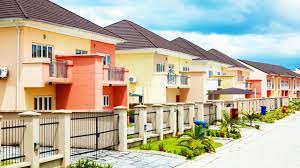Housing is a basic need of man and is universally accepted as the second most important. It remains a fundamental human right, as enshrined in the United Nations Habitat Agenda.
However, this right is being denied to millions of Nigeria who are bedeviled with various challenges such as homelessness, living in shanties and slums, bad-housing conditions, high rent, constant threat of eviction due to inability to meet up rent because of rising inflation just to mention but a few.
Depending on literature and the source of data, Nigeria is currently faced with about 17-23 million housing deficit, one of the highest in the world.
While various government administrations have promised solution to the housing crisis, it has continued to increase.
The current administration in its manifesto promised to supply one million houses units annually, a promise that they have failed on woefully.
The supply of housing is primarily championed by the private sector, but with the challenges faced by private real estate developers which include availability of land, lack of conducive and enabling environment for business, high building material and wage cost, lack of social infrastructure, lack of finance amongst others it means that even when these houses are supplied, the possibility of it being affordable is very slim.
So it is clear that a reliance on private housing supply can never solely provide all the housing units needed to bridge the housing deficit and with government inability to drive housing provision, the need for a different approach is glaring.
Provision of social homes can be a permanent solution to the housing emergency experienced in the country.
Social housing is the term given to accommodations which are provided at affordable rates, on a secure basis to people on low incomes or with particular needs.
Social housing properties are usually owned by the state, in the form of local councils, or by non-profit organisations such as housing associations.
By definition, it depicts a comprehensive partnership between government and private sector for the provision of social housing.
The principle of social housing is that where the private sector is unable to provide the required level of affordable accommodation for all those who need it, the state must intervene to ensure that those on low incomes are provided for.
The provision of social housing is seen as a key remedy to housing inequality, as rent increases are limited so they remain affordable to those most in need.
In the private rental sector, tenancies are offered by landlords to whoever agrees to pay the rent according to the terms of the contract but for social housing, local authorities allocate housing according to the availability in the particular area at the time, and who is or is not eligible for it in their waiting list.
Local authorities usually give certain groups ‘reasonable preference’ on their waiting lists. These are likely to include those who are; elderly, having one form of disability or another, large or young family with many dependents, those legally classified as homeless etc.
By building a new generation of social homes, millions of people could benefit from stable, genuinely affordable homes of high quality. This is something that is just not available for people on lower incomes in the current market.

Why will it work? Social housing provides a stable home that people can stay in for the long-term.
Social homes are also more secure than those that is found in the private sector as the occupant usually have the right to stay for years, providing a good platform from which he or she can acquire his or her own home.
It is well known that having somewhere you can reliably call home provides breathing space to enjoy life. It provides stability to enable children to grow and flourish at school, or for adults to take advantage of career opportunities.
The affordability and stability of social housing can be an anchor for local communities and labour markets.
Social homes enable workers on low wages to continue living close to the jobs that need their skills, and near to family and care networks, making communities resilient to rising market prices.
With the right to stay in their homes for years, tenants have the chance to get know their neighbours and become a real part of the community, helping to sustain local amenities like shops, post offices, and pubs.
Social homes are not just good for individuals; they’re good for the whole country.
Without a supply of social housing, the government has no choice but to help an increasing number of working people cover the high cost of private rents by providing housing benefit.
A new generation of social homes will make sure everyone has access to decent, affordable, secure housing at a sustainable cost to the taxpayer while saving money in the long-term.
Social housing is not perfect – there are problems which need to be solved which include high maintenance cost, low property market value, high running costs, poor indoor environment quality, long-term health, economic and socio-economic impacts on occupants.
However, if the government and housing stakeholders truly want to address the housing deficit being experienced in the country, it is a viable solution.





